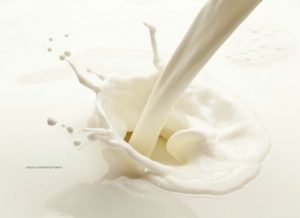E.coli from raw milk has sickened at least eight people, three of whom have lab-confirmed cases of E.coli O167:H7 infections, according to the Tennessee Department of Health. The outbreak underscores the importance of pasteurization, health officials say.
 “Some people who consume raw milk because they believe it is healthier than pasteurized milk are putting themselves and others they share it with at risk for a range of serious illnesses,” said TDH Commissioner John Dreyzehner, MD, MPH, in a statement. “Raw milk is 150 times more likely to cause a foodborne illness than pasteurized milk and can be life-threatening to some, particularly the young. Those who consume raw milk are eroding years of progress in reducing dangerous, preventable illnesses.”
“Some people who consume raw milk because they believe it is healthier than pasteurized milk are putting themselves and others they share it with at risk for a range of serious illnesses,” said TDH Commissioner John Dreyzehner, MD, MPH, in a statement. “Raw milk is 150 times more likely to cause a foodborne illness than pasteurized milk and can be life-threatening to some, particularly the young. Those who consume raw milk are eroding years of progress in reducing dangerous, preventable illnesses.”
E.coli and other harmful bacteria such as Salmonella and Campylobacter are destroyed by pasteurization. Complications from these bacterial infections include Guillain-Barre syndrome, which causes paralysis; and Hemolytic Uremic Syndrome, which causes kidney failure.
“While some adults may be able to tolerate bacteria found in unpasteurized milk or food products made with raw milk, children, older adults, pregnant women and those with weakened immune systems can be in great danger,” said Deputy State Epidemiologist John Dunn, DVM, PhD, in a statement.
Symptoms of food poisoning from raw milk include upset stomach, abdominal pain, vomiting, diarrhea and flu-like symptoms including fever, headache and body aches. Health officials urge anyone who developed these symptoms after drinking raw milk to see their health care provider and notify their local health department. Discuss your possible exposure to E.coli with your doctor as E.coli infections can be made worse through treatment with antibiotics.
“Despite the cleanest barns and the best efforts of farmers, raw milk can contain harmful bacteria,” said Tennessee Department of Agriculture Commissioner Julius Johnson, in a statement. “We all need to understand raw milk can be contaminated with deadly microorganisms. Pasteurization kills these without significantly affecting the taste or nutritional quality of milk.”
Interstate sales of raw milk have been banned by the U.S. Food and Drug Administration since 1987. Each state has its own raw milk laws. In Tennessee it is legal for individuals to consume raw milk from their own animals. The milk associated with this outbreak was from a cowshare program at McBee Dairy Farm in Mascot. The Tennessee Department of Health suggests consumers read labels of milk and cheese products to make sure they buy only those which have been pasteurized.




